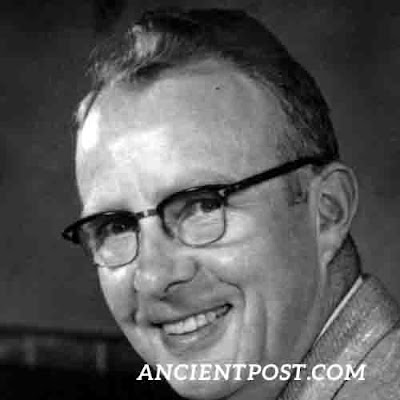Life History

Luis Alvarez Birth
Luis Alvarez was born on June 13, 1911, in San Francisco, California, USA
Luis Alvarez Accomplishments
Luis Alvarez was a highly accomplished physicist and inventor. Some of his notable accomplishments include:
Development of the bubble chamber: Alvarez developed the bubble chamber, which is a device used to detect and study subatomic particles. It works by heating a liquid, such as liquid hydrogen, to a temperature above its boiling point, creating a superheated state. When a subatomic particle passes through the liquid, it causes bubbles to form, which can be photographed and studied.
Measurement of the properties of elementary particles: Alvarez used the bubble chamber to make precise measurements of the properties of subatomic particles, such as their masses, charges, and lifetimes.
Discovery of the muon: Alvarez and his team discovered the muon, a subatomic particle that is similar to the electron but has a much greater mass.
Contribution to the Manhattan Project: Alvarez worked on the Manhattan Project, the secret U.S. government research program that developed the first nuclear weapons during World War II. He developed a method for separating isotopes of uranium, which was crucial for the production of the atomic bomb.
Discovery of the Alvarez Effect: Alvarez discovered that the concentration of iridium in the Earth's crust is much higher at the boundary between the Cretaceous and Tertiary periods than it is in other layers. He proposed that this was caused by the impact of a large asteroid or comet, which led to the extinction of the dinosaurs.
These are some of the most important scientific contributions of Luis Alvarez, which marked the history of science, and remain relevant and studied today.
Luis Alvarez Family Background
Luis Alvarez was born in San Francisco, California, to Walter C. Alvarez and Harriet Skidmore Alvarez.
His father, Walter C. Alvarez, was a physician and medical researcher, and his mother, Harriet Skidmore Alvarez, was a homemaker. His father was of Spanish and Basque descent and his mother was of Irish descent.
Alvarez had two brothers, Robert and Walter Jr. His brother, Robert Alvarez, was also a physicist and worked on the Manhattan Project during World War II.
Robert's son, Luis Walter Alvarez, was also a physicist who was awarded the Nobel Prize in Physics in 1968.
Alvarez's family background, particularly his father's work as a physician and researcher, likely had an influence on his own scientific pursuits. Additionally, his brother Robert's work in physics may have also played a role in Alvarez's decision to pursue a career in physics.
Luis Alvarez Education
B.S. in Physics and Mathematics, University of California, Berkeley, 1932
Ph.D. in Physics, University of California, Berkeley, 1936
Luis Alvarez Career
Luis Alvarez had a diverse and accomplished career as a physicist and inventor. Some notable highlights include:
Worked on the Manhattan Project during World War II, helping to develop the atomic bomb.
Made significant contributions to the development of the hydrogen bomb.
Conducted pioneering work in the field of nuclear physics, including the discovery of strange particles.
Made important contributions to the field of medical physics, including the development of the cancer therapy technique called proton therapy.
Developed radar technology and helped to develop new instrumentation for airplanes.
Published over 50 research papers and received numerous awards and honors for his work, including the Nobel Prize in Physics in 1968.
Awards
Luis Alvarez won several awards throughout his career, including:
Nobel Prize in Physics (1968)
National Medal of Science (1967)
Presidential Medal of Freedom (1981)
Ernest O. Lawrence Memorial Award (1953)
US National Academy of Sciences Comstock Prize (1950)
Fermi Prize (1983)
John Price Wetherill Medal (1966)
Leo Szilard Lectureship Award (1986)
These awards recognized his contributions to the fields of physics, especially his work on the Manhattan Project, and his innovations in particle physics and X-ray technology.
Luis Alvarez Personal Life
In 1936, he married Geraldine Smithwick, with whom he had five children.
Luis Alvarez Death
Luis Alvarez at the age of 77 died on September 1, 1988.
About Us
Ancient Post is proud to write about(Luis Walter Alvarez)and if you have any comments on this article please Contact US
